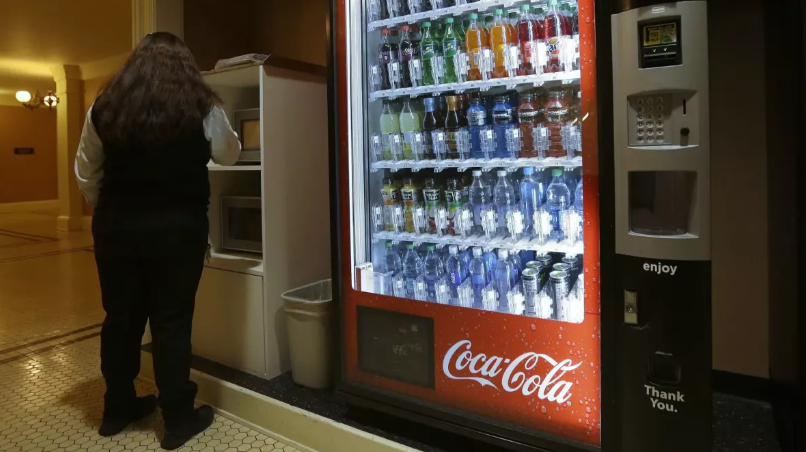Running a vending machine business can be an excellent source of income, especially with the right locations and machine selections. But beyond just earning revenue, owning vending machines also opens the door to valuable tax deductions that can significantly lower your taxable income.
Let’s break down, in detail, what vending machine operators can typically write off on their taxes:
1. Vending Machines (Capital Equipment)
When you purchase vending machines, they are considered a capital asset. The IRS allows you to either:
- Depreciate the machines over a few years (usually 5 to 7 years depending on the method chosen), or
- Use Section 179 Deduction to immediately deduct the full cost in the year of purchase, up to a certain limit (in 2025, Section 179 limits are over $1 million).
👉 Example: If you buy a machine for $3,000, you could deduct all $3,000 the same year if you elect to use Section 179.
2. Inventory (Snacks, Drinks, Prizes)
Every bag of chips, soda can, candy bar, or toy you stock is deductible. Inventory you buy to fill the machines is considered a cost of goods sold (COGS).
Make sure to keep receipts or records from your wholesale club memberships like Sam’s Club, Costco, BJ’s, or distributors.
👉 Pro Tip: If you order online and pay for shipping, those shipping costs are also part of your COGS.
3. Repairs and Maintenance
Keeping your vending machines in good working order is part of the business. Costs associated with:
- Replacing broken parts (coin mechanisms, motors, lights)
- Professional servicing
- Cleaning supplies (for machine upkeep)
These expenses are fully deductible as ordinary and necessary business expenses.
4. Vehicle Expenses
If you use a personal or company vehicle to service your machines, restock inventory, or scout for new locations, you have two options:
- Mileage Deduction: For 2025, the standard mileage rate is expected to be around 67 cents per mile (check IRS updates).
- Actual Expenses: Deduct a portion of actual expenses like gas, insurance, repairs, oil changes, tires, and lease payments.
👉 Important: You need a mileage log showing the date, purpose of trip, start and end mileage for each trip.
5. Office Supplies and Equipment
Even a mobile business needs admin work. You can deduct:
- Notebooks
- Pens
- Paper
- Printers and printer ink
- Computers, tablets, and smartphones (percentage used for business)
- Business management software subscriptions (inventory tracking, accounting apps)
6. Advertising and Marketing
Anything you spend to promote your vending business can usually be deducted:
- Flyers and business cards
- Website hosting and development
- Google Ads, Facebook Ads
- Branded T-shirts or vehicle wraps with your vending company name
7. Business Insurance
If you carry insurance on your machines, liability coverage for accidents, or a business owner’s policy (BOP), those premiums are deductible.
8. Commissions Paid to Locations
Many locations require a commission (e.g., 10% of sales) to allow you to place your machines. These commissions are deductible as a cost of doing business.
Make sure to keep good records of payments and contracts.
9. Licenses and Permits
Many cities and counties require vending operators to have business licenses, sales tax permits, or vending machine permits. Fees paid for these permits and licenses are deductible.
10. Professional Services
If you hire accountants, bookkeepers, tax preparers, legal advisors, or consultants, their fees are deductible.
Hiring a professional helps ensure you’re maximizing deductions and staying compliant with tax laws.
11. Travel and Meals (If Applicable)
If you travel overnight for business (e.g., to a vending trade show or to scout distant locations), your travel expenses like hotel stays, airfare, and rental cars are deductible.
Meals while traveling are typically 50% deductible. Always keep receipts and note the business purpose.
12. Depreciation on Other Equipment
If you buy additional tools like:
- Hand trucks
- Dollies
- Storage shelves for inventory
- Portable generators (for outdoor machines)
These can either be deducted outright or depreciated over a few years, depending on their cost and usage.
Final Tips:
- Keep Detailed Records: Save all receipts, invoices, mileage logs, and spreadsheets.
- Separate Business and Personal Finances: Have a separate business bank account and credit card.
- Consult a Tax Professional: Every vending business is different. Some deductions might apply differently depending on your setup, number of machines, and structure (sole proprietor, LLC, S-corp).
In Conclusion, the vending machine business not only provides flexible income opportunities but also many tax advantages if you know what to deduct. By understanding and tracking these expenses carefully, you can boost your profitability and legally minimize your tax bill.



